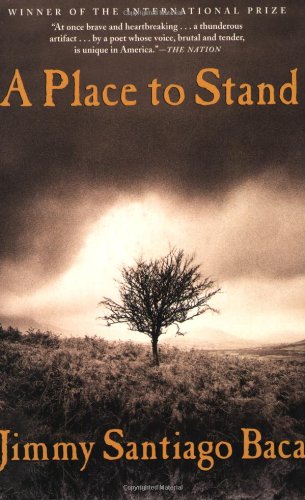During the week I spent going through my mum’s things a few years ago, I discovered a scrap of paper with a few sketched thoughts. She did not sign it, but I’m rather sure this is an original:
A poem is a song
A dehydrated thought.
It’s the essence of meaning
An idea just caught.
That sets off resonating chords in me because when I write poetry, that is a bit of what I’m aiming for: a high-speed shutter on the beat of a hummingbird’s wing. A week ago, at the invitation of a fellow author, I ventured to the Enchanted Lands of New Mexico and braved the desert heat to spend some time with a tight knit, unique, community of poets. This was the 10th annual retreat put together by Jimmy Santiago Baca and his growing network of folks that know and love him.
Born of an Apache father and a Chicano mother, Baca did not enter the world with a bucket of chips to bargain with. He knew the jail cell before he knew the classroom and at the age of 21, he was convicted on charges of drug possession and given a five year sentence. Three of those were in isolation for the audacity of seeking education. Beaten and discarded, he persisted and taught himself to read and to write poetry. He sold his first efforts to fellow inmates in exchange for cigarettes. One of those inmates suggested he submit some of his poems to Mother Jones. The editor at the time worked with him until a publisher agreed to publish his first book.
I’m sure the path was anything but easy from that point but now he has an impressive list of successful publications including, A Place to Stand (2001), Immigrants in Our Own Land (1990), and a screenplay entitled Blood In Blood Out. He appeared as an actor in the film and was one of the producers. There is also a film based on A Place to Stand directed by Daniel Glick and released in 2014. The creators made a school curriculum based on the lessons Baca learned. He has received the American Book Award for poetry, the Hispanic Heritage Award in Literature, and the Pushcart Prize (that I know of).
That, however, is not the full story. Jimmy started a non-profit organization in 2004 called Cedar Tree, Inc. that supports literary workshops for inmates and at-risk youth. Cedar Tree has produced two documentary films, Clamor en Chino and Moving the River Back Home. It employs ex-offenders as interns. And THAT my friends is the root of the tree—giving back, pouring the hard lessons won back into a hurting world and impowering authentic voices.
I met a number of those voices during those three, intense days. This is a community of people who have survived generational trauma and abuse, child trafficking, more time in prison than in the world at large, discrimination, and a host of other blockades to success. A solid majority of them not only completed basic education, but went on to acquire multiple degrees, some using their masters and PhDs to become professors in universities. Their poetry, their prose, bleeds across the page and drips into your heart with the drum beat of owning their heritage and turning it into strength. A strength they share without hesitation.
Jimmy had thought about retiring from the retreat portion of his activities. Cedar Tree, Inc, of course, is still actively pursuing its mission to support the healing power of verse through programs that include fellowships and partnerships with universities such as Stanford. Well, between the Albuquerque Museum of New Mexico offering to move the retreat to their main auditorium, and the unanimous support of this year’s attendees, he has chosen to continue his annual program. This is not a retreat where you go to learn craft. This is where you go to find your heart, or realize you’ve always known where it was, you only needed to speak it.
Baca’s main website provides additional information, and he does have a Facebook profile.




No Comments